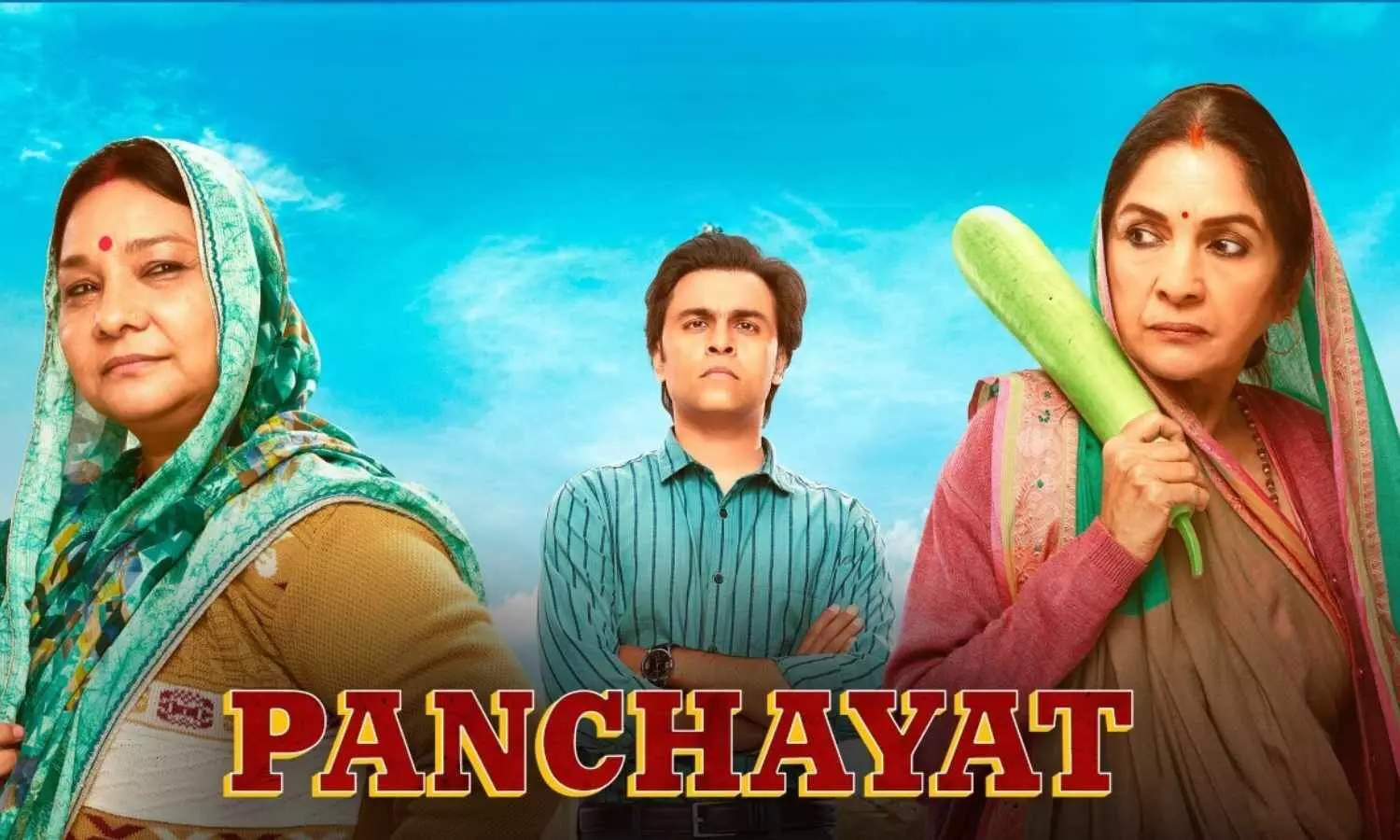Panchayat Season 4 Review: Fading Charm Amid Intensifying Village Politics
Panchayat Season 4 delves deeper into murky village politics, but loses some of its original charm. A slower narrative and heavier tone mark a shift from earlier seasons’ light-hearted appeal.
Panchayat Season 4 takes a darker political turn, losing some of its signature simplicity

Panchayat returns for its fourth season on Prime Video, and with it comes a heavier political atmosphere and fewer laughs. While the show retains its rooted charm through relatable characters and village life nuances, its tone has shifted significantly from heartwarming and humorous to scheming and emotionally tense.
When Politics Turns Personal
In the final episodes of the season, Brij Bhushan Dubey (Raghubir Yadav), affectionately known as Pradhan ji, delivers a line that sets the tone for the entire series:
"Politics isn’t child’s play where everything goes smoothly."
And true to his words, Panchayat Season 4 explores just how dirty and emotionally draining local governance can become.
Hints of Classic Panchayat Wit Still Shine
The previous season’s tonal shift caught many viewers off guard, and Season 4 continues in the same direction. However, there are still glimpses of the dry, situational humor fans adore. One scene features Sachiv ji Abhishek (Jitendra Kumar) receiving a simple “Hi” in their men’s WhatsApp group a cue for gathering, venting, and enjoying a drink.
Adding to the humor is the appearance of Pradhan ji’s real father-in-law (played by theatre veteran Ram Gopal Bajaj), prompting the classic “Aye sasur!” line this time with full accuracy.
Faisal Malik’s Prahlad continues to impress with a restrained, deeply human performance. His occasional laughter acts as both comic relief and emotional contrast to the loss of his son, a grief introduced in Season 2.
From Lauki to Pressure Cooker: Politics Gets Real
Symbols matter in elections, and in Phulera, they’re hilariously represented by a lauki (bottle gourd) and a pressure cooker. Manju Devi’s ruling party finds itself in constant competition with Kranti Devi’s opposition, led by the ever-boisterous Bhushan aka Banrakas.
Tensions reach a high when Kranti Devi (Sunita Rajwar) delivers a scathing, false attack on Khushboo, the pregnant wife of Vikas Shukla (Chandan Roy). The emotional fallout and community reactions show how small-town politics can spiral rapidly.
Food Becomes a Political Weapon
Food is a recurring theme this season and a powerful one. A clever nod to Bollywood’s Welcome surfaces through a potato vendor’s cry of “Aaloo le lo!” But Bhushan has already cornered the market by buying all the potatoes a sly power move.
Manju Devi responds with samosas, prepared and distributed at the tea stall, winning over villagers one snack at a time. This food diplomacy even includes a subtle jab at Lalu Prasad Yadav’s famous samosa-aloo remark from Bihar’s political folklore.
Side Characters Take the Spotlight
One of this season’s strengths is how it gives more screen time to previously underused characters like Binod (Ashok Pathak) and Madhav (Buloo Kumar). Their development adds complexity to the power struggle. Manju Devi, ever resourceful, tries to lure Binod away from Kranti Devi’s camp using food and sweet seviyan as bait.
As for Rinky (Sanvikaa), she reflects her father’s ego-driven mindset more than his political savvy. Her interactions with Abhishek offer a mix of flirtation and confrontation typical of two people caught between ambition and uncertainty.
Love Blossoms, But Career Looms
After three seasons of subtle hints, Abhishek and Rinky’s budding relationship finally takes center stage. But the romance is complicated by Abhishek’s aspirations he’s waiting on his CAT exam results, hoping to leave Phulera for a better future.
In one key scene, when Rinky asks what happens if her mother loses the election, Abhishek replies, “Then I’ll resign and leave.” His blunt honesty earns a silent, disappointed reaction from Rinky.
Is Panchayat Season 4 Worth Watching?
If you’re a long-time fan, there’s still plenty to enjoy. The performances remain strong, especially from veterans like Raghubir Yadav, Neena Gupta, and Faisal Malik. The writing, while more serious, is still insightful and rich in local flavor.
The eighth and final episode sets the stage for Season 5, suggesting that the makers are far from done with Phulera’s political chessboard.
For casual viewers, the emotional weight and darker themes might not deliver the easy laughter Panchayat once guaranteed but it offers a thoughtful, well-acted depiction of rural power games.
As Abhishek's friend reminds him in Episode 1: “Load mat le yaar, sab theek ho jayega.” Maybe that’s a message for viewers, too, as Phulera prepares for another round of ballots and backstabbing in the seasons ahead.

